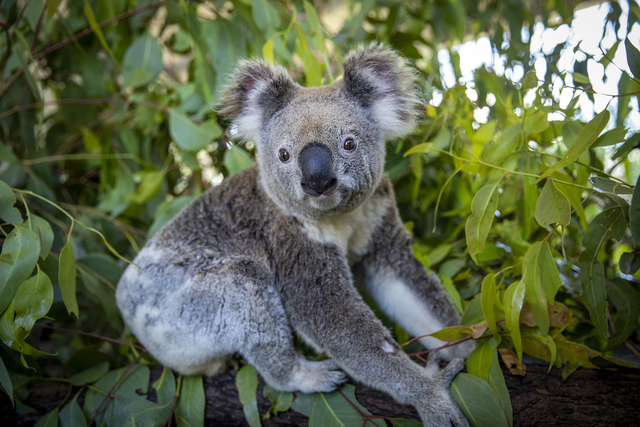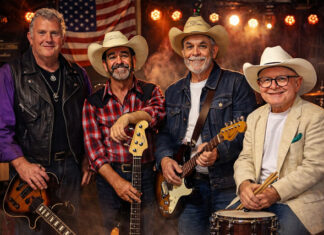The Australia Zoo Wildlife Hospital remains a lifeline for native wildlife, with repeat patients like koala Summer returning to their care, underscoring the critical need to protect these iconic animals.
Summer was recently brought to them suffering from conjunctivitis, a common symptom of chlamydia, which affects a large portion of the koala population.
Sadly, Summer is no stranger to the Wildlife Hospital. In 2021, she was found on the side of the road after being hit by a vehicle, with a joey in her pouch who, thankfully, was unharmed in the ordeal.
After suffering from a ruptured eardrum and severe head trauma, Summer required intensive treatment and stayed in the ICU for six months.
Her joey, affectionately named Salt, remained safely in her pouch at the Wildlife Hospital, gradually beginning to peek out as Summer’s recovery progressed.
Dr Ludo Valenza, manager and veterinarian at Australia Zoo Wildlife Hospital said, “Summers dedication to her joey Salt, was unwavering. Salt remained with Summer for the duration of her treatment, right up until he was at a dispersing age. At this point he joined the hospital’s Koala Kindy to learn the essential survival skills for an adult koala in the wild.“
“We pour our heart and soul into every patient that comes to the Wildlife Hospital. Summer had a prolonged rehabilitation journey back in 2021, and when she was cleared for a release, we were beyond thrilled,“ said Dr. Ludo.
“To have Summer re-admitted for conjunctivitis this time, is devastating for all of us at the Wildlife Hospital, as we’re seeing these beautiful animals disappear before our eyes,“ she said.
More than 50 per cent of koalas who are admitted suffer from disease, if not hit by a vehicle, attacked by domestic pets, or orphaned. Given the prolonged treatment some koalas require, depending on their injuries, it can cost up to $20,000 to rehabilitate one patient.
“Koalas produce one offspring per year, and Summer is healthy and of breeding age. Instead of being out in the wild contributing to the survival of the species, she is having to undergo treatment for chlamydia, this is devastating,“ said Dr Ludo.
“We need to stay vigilant on the roads, keep our pets secure at night, and prevent habitat destruction to ensure these iconic animals don’t lose their homes. As their natural habitat disappears and trees become scarce, they end up in people’s backyards and other unsafe places,“ she said.
The Australia Zoo Wildlife Hospital is one of the flagship projects of Wildlife Warriors, a not-for-profit organisation founded by Steve and Terri Irwin in 2002, and has treated more than 11,000 koalas since it first opened.
Visitors to Australia Zoo can make a small donation and visit the Wildlife Hospital’s Sneak Peek, where they are able to see the veterinarian team and hospital in action as they treat, sick injured and orphaned wildlife.
To find out more about the Wildlife Hospital and how you can help, visit wildlifewarriors.org.au








